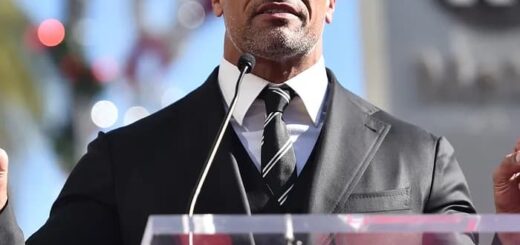George Carlin’s: Unique view

George Carlin, renowned for his sharp wit and thought-provoking humor, was a legendary comedian and a keen observer of politics and society. Throughout his career, Carlin fearlessly tackled political issues, often challenging conventional norms and sparking conversations that continue to resonate today.
Early Life and Unconventional Beginnings:
Born on May 12, 1937, in New York City, Carlin’s early life was marked by challenges and an unyielding desire to stand out. Raised in a working-class family, he found solace in comedy, often mimicking radio personalities and exploring humor as a coping mechanism.
A Journey to the Stage:
Carlin’s passion for comedy led him to perform stand-up routines in local clubs. His breakthrough came in the 1960s when he teamed up with Jack Burns for a comedy duo that gained popularity for their insightful humor and social commentary.
The Transformational Carlin:
Carlin’s comedy style underwent a transformation in the late 1960s. Shedding the clean-cut image, he embraced a countercultural ethos, letting his hair grow and adopting a more provocative and edgy comedic persona. This evolution marked a turning point in his career.
Provocative Social Commentaries:
Carlin’s rise to prominence was fueled by his daring critiques of societal taboos, politics, language, and religion. His album “Class Clown” (1972) featured his famous “Seven Words You Can Never Say on Television” routine, which led to a Supreme Court case on obscenity. This episode solidified Carlin’s reputation as a fearless free speech advocate.
The “Thinking Man’s Comic”:
Often hailed as the “thinking man’s comic,” Carlin’s routines delved into complex subjects while making audiences burst with laughter. His exploration of language manipulation, euphemisms, and absurdities in everyday life resonated with a wide spectrum of listeners.
Beyond Comedy:
Carlin’s impact transcended the stage. He authored books, penned autobiographical works, and continued to provoke thought through interviews and appearances on television shows. He even hosted the first episode of “Saturday Night Live” in 1975.
Legacy and Lasting Influence:
Carlin’s legacy lies in his ability to blur the lines between humor and social critique. He inspired subsequent generations of comedians to address pressing issues with candor and wit. His specials like “Jammin’ in New York” (1992) and “Life Is Worth Losing” (2005) stand as testaments to his fearless exploration of life’s complexities.
A Pioneer of Satirical Comedy:
Carlin’s unique ability to blend humor and satire made him a pioneer in the world of stand-up comedy. He fearlessly tackled controversial topics, unmasking hypocrisy and shedding light on systemic issues. His routines often took on a satirical tone, using irony and exaggeration to expose the flaws and contradictions of society.
Questioning Authority and Language:
One of Carlin’s most impactful contributions was his relentless questioning of authority figures and institutions. He challenged the government, organized religion, and the media, urging people to critically analyze the information they were fed. His famous routine on “soft language” revealed how words can be manipulated to shape public perception, highlighting the power of language in shaping our understanding of reality.
Legacy of Activism:
Carlin’s comedy was not limited to the stage; it was a form of activism that aimed to spark change. He used humor as a tool to dismantle conventional wisdom, encouraging people to think independently and challenge societal norms. His unabashed critiques of war, inequality, and censorship resonated with audiences who sought a voice that echoed their own skepticism.

Political Insights of George Carlin:
George Carlin’s comedic prowess was characterized by his unfiltered commentary on various aspects of society, including politics. His unique blend of humor and critical analysis allowed him to shed light on political hypocrisies and inconsistencies. Here are some key insights into George Carlin’s political views:
1. Anti-Establishment Stance:
Carlin was famously skeptical of authority and government institutions. He believed that those in power often exploited their positions to serve their own interests rather than the well-being of the people. This anti-establishment stance was a recurring theme in his comedy.
2. Critique of American Dream:
Carlin’s humor often exposed the illusion of the “American Dream.” He highlighted the disparity between the promises of success and the harsh realities many face, underscoring issues like economic inequality and social injustice.
3. Free Speech Advocate:
Carlin fiercely advocated for the importance of free speech. He defended the right to express dissenting opinions, even if they challenged societal norms. His “Seven Words You Can Never Say on Television” routine became a landmark case in the debate over censorship and artistic freedom.
4. Political Language Manipulation:
Carlin dissected the manipulative nature of political language. He pointed out how politicians often use euphemisms and vague terminology to obscure the truth and manipulate public perception. His famous line, “It’s a big club, and you ain’t in it,” highlighted the disconnect between politicians and ordinary citizens.
5. Questioning the System:
Carlin encouraged his audience to question the system and to be critical thinkers. He challenged blind patriotism and urged people to look beyond superficial narratives to understand the complex realities of political and social issues.
Comparison Table: George Carlin’s Views vs. Mainstream Politics
| Aspect | George Carlin | Mainstream Politics |
|---|---|---|
| Authority | Skepticism toward authority | Trust in established institutions |
| American Dream | Critique of its feasibility | Emphasis on pursuing success |
| Free Speech | Strong advocate | Balancing with societal values |
| Political Language | Exposed manipulation | Strategic use of rhetoric |
| System Critique | Encouraged questioning | Focus on maintaining stability |
Video Guide
To help you understand this issue in even more detail, we have prepared a special video for you. Enjoy watching it.
Influence on Contemporary Comedians
Carlin’s impact on the comedy landscape is undeniable, as he paved the way for a new generation of comedians unafraid to tackle controversial subjects. His fearless approach to pushing boundaries and his commitment to free expression continue to inspire comedians today. Carlin’s influence can be seen in comedians like Jon Stewart, Bill Maher, and John Oliver, who use humor to dissect political and social issues.
A Lasting Message
Carlin’s legacy extends beyond his comedy albums and specials; it lies in the enduring messages he left behind. He reminded us that comedy has the power to challenge, provoke, and ignite conversations that lead to change. Through his irreverent humor and relentless pursuit of truth, George Carlin’s impact on both comedy and society at large remains an integral part of his legacy.
Conclusion
George Carlin’s political views were a driving force behind his incisive comedy. He fearlessly confronted societal norms, critiqued political manipulation, and encouraged critical thinking. His legacy as a comedian and social commentator continues to inspire discussions about politics, power, and the need to question the status quo.
George Carlin’s comedic genius transcended laughter; it provoked thought, spurred conversations, and challenged the norms that often go unquestioned. His ability to use humor as a force for change solidifies his place as an iconoclast who left an indelible mark on comedy, culture, and the way we perceive the world.
FAQ
No, Carlin didn’t openly endorse any political party. His critiques were directed at the broader political system rather than specific parties.
While his core views remained consistent, Carlin’s comedy evolved to reflect changing political and social landscapes.
Carlin’s comedy covered a wide range of topics, but political themes were a significant part of his repertoire.
Carlin’s political insights added depth to his comedy, allowing him to challenge audiences to think critically about societal issues.
Yes, Carlin’s outspoken views occasionally sparked controversy, especially when he challenged mainstream beliefs and institutions.


